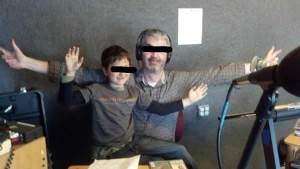The “Teddy Bears’ Picnic” song is a tune that evokes instant feelings of childhood joy and whimsical outdoor adventures. Beyond its popular appeal as a children’s classic, this song holds a fascinating, almost forgotten, connection to the history of BBC radio and its early broadcasting technology.
In 1932, a recording of “Teddy Bears’ Picnic” by BBC band leader Henry Hall became unexpectedly crucial for the British Broadcasting Corporation. The recording, remarkably for its time, possessed exceptional tonal quality. This sonic fidelity led BBC engineers to adopt it as a standard test for their audio equipment for nearly three decades.
One BBC staff member recounted the ubiquitous presence of the record, stating:
“The BBC Chief Engineer had laid down that one side of one particular record would be used for testing gramophones because it had a very wide range of frequencies and acoustics. That particular record was ‘The Teddy Bears Picnic’ played by Henry Hall and his band, and the singer was Hal Rosen [possible error here; I think he meant Val Rosing]. We had piles of these blessed records, which were well and truly worn by the heavy pick-up and steel needle (which had to be discarded and replaced after each playing!).
One became very fed-up playing this and one day, just for devilment, I put the reverse side on, which was ‘Hush, Hush, Hush, here comes the Bogey Man!’ My colleague in the Control Room must have been listening to my antics on a loud speaker and not headphones as was the usual practice, and due to this, the SME (Senior Maintenance Engineer) on duty must have heard, and using the intercom system over the studio loudspeaker, a voice boomed out ‘Faulkner, put the other side of that record on’!”
This anecdote highlights not only the song’s technical utility but also its sheer pervasiveness within the BBC during that era. Imagine countless playbacks, the cheerful melody of the “Teddy Bears’ Picnic song” resonating through the halls of broadcasting as equipment was meticulously calibrated.
 Henry Hall's Band The Teddy Bears Picnic record
Henry Hall's Band The Teddy Bears Picnic record
The selection of “Teddy Bears’ Picnic” for such a technical purpose is somewhat ironic, given its lighthearted nature. Originally composed as an instrumental in 1907 by American composer John Walter Bratton, with lyrics added later in 1932 by Irish songwriter Jimmy Kennedy, the song was intended to evoke images of playful teddy bears enjoying a woodland feast. Its transformation into a tool for maintaining audio fidelity underscores the unexpected ways in which cultural artifacts can find new and unforeseen roles.
While the BBC’s historical use of the “Teddy Bears’ Picnic song” is a niche piece of radio history, it speaks to the song’s enduring quality. From its origins as a charming instrumental piece to its lyrical adaptation and its surprising stint as a broadcasting benchmark, the “Teddy Bears’ Picnic song” continues to capture imaginations across generations. Its legacy extends far beyond children’s parties, embedding itself in the very fabric of radio history.
The story serves as a reminder that even the most whimsical and lighthearted creations can have unexpectedly significant impacts, resonating in ways far beyond their original intent. The next time you hear the familiar strains of the “Teddy Bears’ Picnic song”, perhaps you’ll recall its hidden history as a cornerstone of BBC’s audio excellence.

